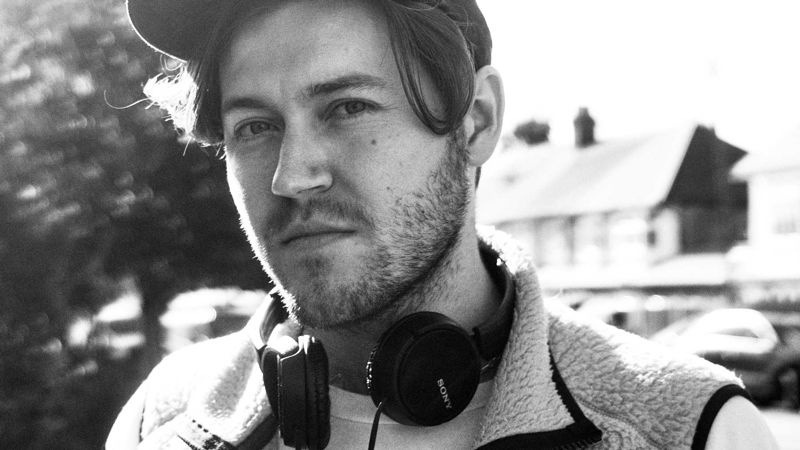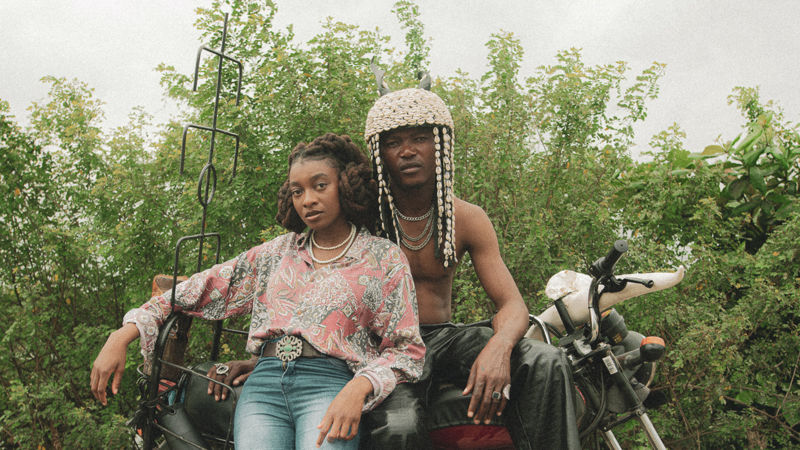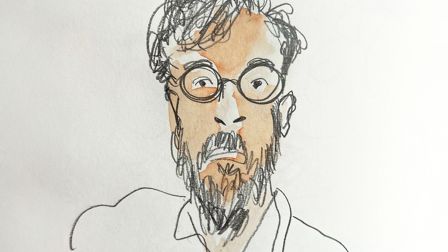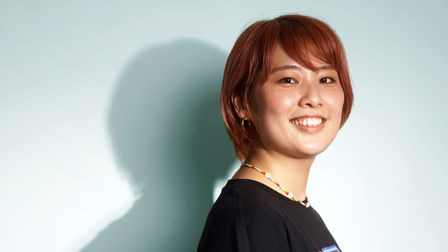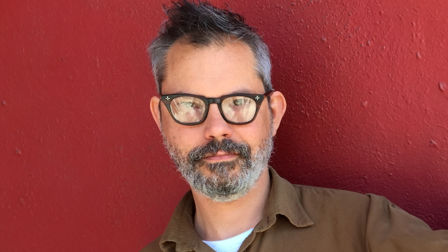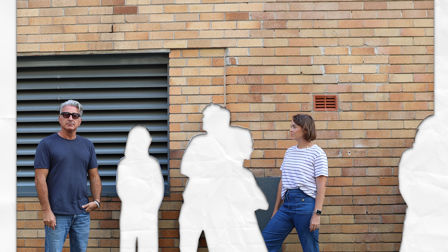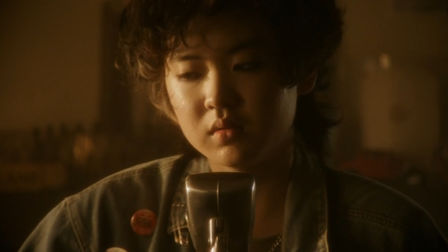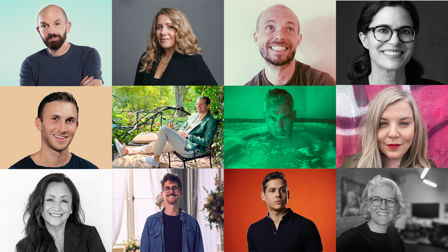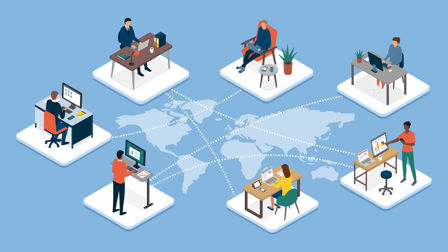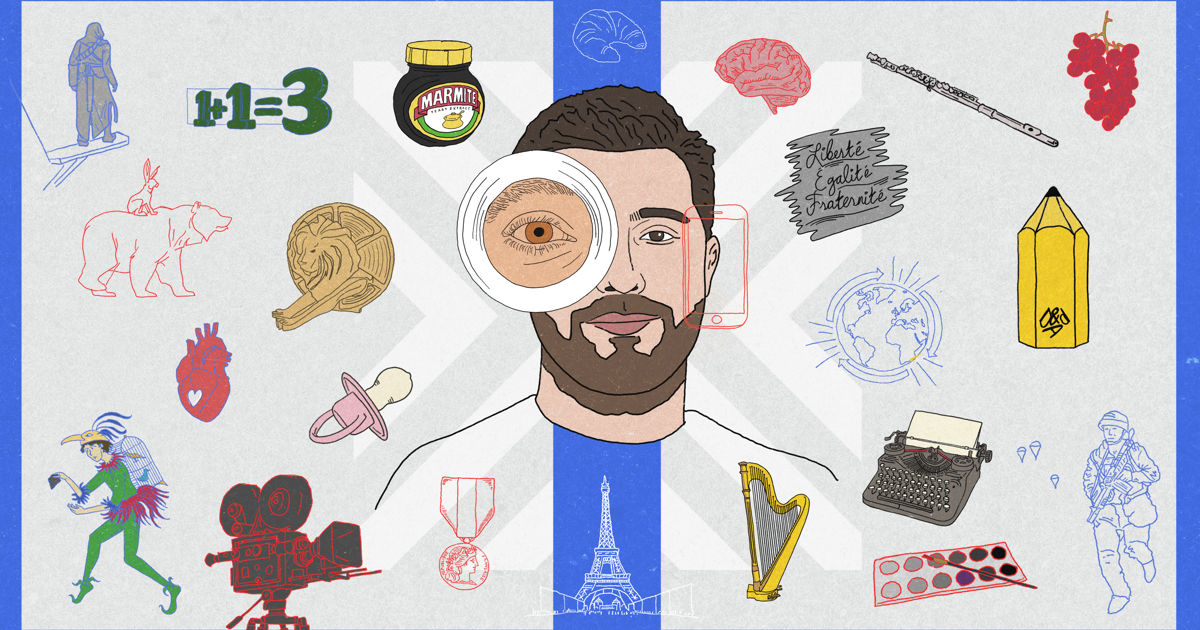The Way I See It: Laurent Simon
Currently the CCO of VMLY&R, Laurent Simon’s track record encompasses co-creating the first major John Lewis Christmas blockbuster, The Bear & The Hare, upholding the excellence of BBC2’s idents while helming the ship for BBC Creative, and bagging the Cannes Lion Effectiveness Grand Prix for Adam & Eve. He tells Tim Cumming about military strategies, the 'happiness hit' that awards bring and the value of diversity.
I was born near Bordeaux, in the lovely wine region of Saint-Émilion. My dad was in the army so we lived in various places. Being raised by an army officer has shaped the way I think. He was a man of few words, but when he opened his mouth, he was spot on.
We work in an industry that’s so polarising. There was a poll a while ago that showed we’re even less popular than estate agents. That tells you everything you need to know.
Dad always gave me the same advice. ‘Hard training, easy war’. It’s about being able to plan for what’s to come when that situation arises – whatever the challenge. Then there was: ‘Lead from the hill, the trenches and the front line’. It’s about being where it matters. There are times you need to see the bigger picture, times to be among it all, and times when you have to lead by example. That’s shaped the way I work.
A lot of my family were or are involved in politics. It’s had a profound impact on me and how I want the work that we do to contribute [to society].
We work in an industry that’s so polarising. There was a poll a while ago that showed we’re even less popular than estate agents. That tells you everything you need to know.
Credits
powered by
- Agency Adam & Eve NY
- Production Company Hornet
- Director Elliot Dear
-
-
Unlock full credits and more with a Source + shots membership.
Credits
powered by
- Agency Adam & Eve NY
- Production Company Hornet
- Director Elliot Dear
- Producer Anthony Falco
- Asst Producer Catherine Cullen
- Account Manager Caroline Grayson
- ECD/Art Director Ben Priest
- CD Aidan McClure
- CD Laurent Simon
- Animation Supervisor Aaron Blaise
- Editor Ellie Johnson
- Sound Design Sam Robson
- Colorist Jean-Clement Soret
- Exec Producer Bart Yates
- Exec Producer James Stevenson Bretton
- Exec Producer Josephine Gallagher
- Line Producer Kev Harwood
- Prod Manager Benjamin Lole
- Director Yves Geleyn
- Character Designer Aaron Blaise
- Editor Sam Sneade
- Animation Supervisor Dominic Carola
- Exec Producer Michael Feder
- Production Company Hornet
- Post BLINKINK
- Lead Stop Frame Anim Andy Biddle
- DP Toby Howell
- Prod Design John Lee / UK (Production Designer)
- Managing Partner Tammy Einay
- Song "Somewhere Only We Know" Lily Allen
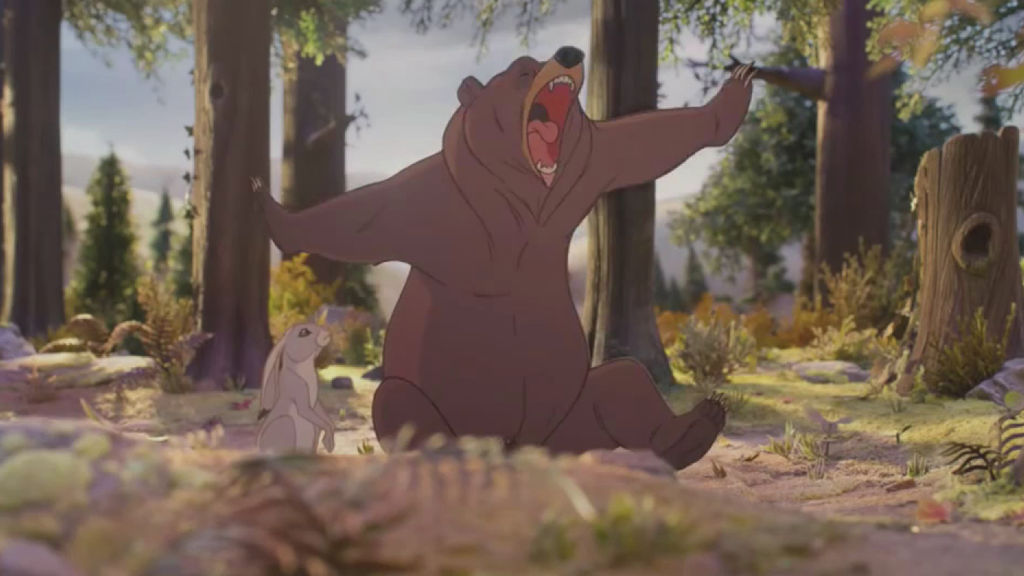
Credits
powered by
- Agency Adam & Eve NY
- Production Company Hornet
- Director Elliot Dear
- Producer Anthony Falco
- Asst Producer Catherine Cullen
- Account Manager Caroline Grayson
- ECD/Art Director Ben Priest
- CD Aidan McClure
- CD Laurent Simon
- Animation Supervisor Aaron Blaise
- Editor Ellie Johnson
- Sound Design Sam Robson
- Colorist Jean-Clement Soret
- Exec Producer Bart Yates
- Exec Producer James Stevenson Bretton
- Exec Producer Josephine Gallagher
- Line Producer Kev Harwood
- Prod Manager Benjamin Lole
- Director Yves Geleyn
- Character Designer Aaron Blaise
- Editor Sam Sneade
- Animation Supervisor Dominic Carola
- Exec Producer Michael Feder
- Production Company Hornet
- Post BLINKINK
- Lead Stop Frame Anim Andy Biddle
- DP Toby Howell
- Prod Design John Lee / UK (Production Designer)
- Managing Partner Tammy Einay
- Song "Somewhere Only We Know" Lily Allen
Above: The Bear & The Hare of 2013 set the bar for subsequent John Lewis ads.
It's important to make sure the work always comes from a good place. If you have integrity in what you do, that integrity will show, and people will welcome it and appreciate it; consciously or unconsciously.
When you grow up with agriculture you understand the cycle of nature. Everything’s got a rhythm, everything’s got a cycle, everything’s got a season.
My mum’s side of the family have always been winegrowers. It’s something that runs in the family blood. When you grow up with agriculture you understand the cycle of nature. Everything’s got a rhythm, everything’s got a cycle, everything’s got a season.
When I was in primary school I was with the same group of kids day and night. One of the parents was a graphic novelist – she was always drawing. I’ve always drawn because it’s something I saw people around me do.
My grandmother on my dad’s side loved opera and classical music, and she wanted me to experience that – it was transformative. To this day, I still think opera is the best artistic expression. I’m pretty sure people watching it today experience the same emotions felt hundreds of years ago. There’s something timeless about it.
Credits
powered by
- Designer Erik Brattested
- Agency Producer Georgina Meirick
- Executive Creative Director Laurent Simon
- Executive Creative Director
- Creative Director Susan Ayton
- Creative Director Katherina Tudball
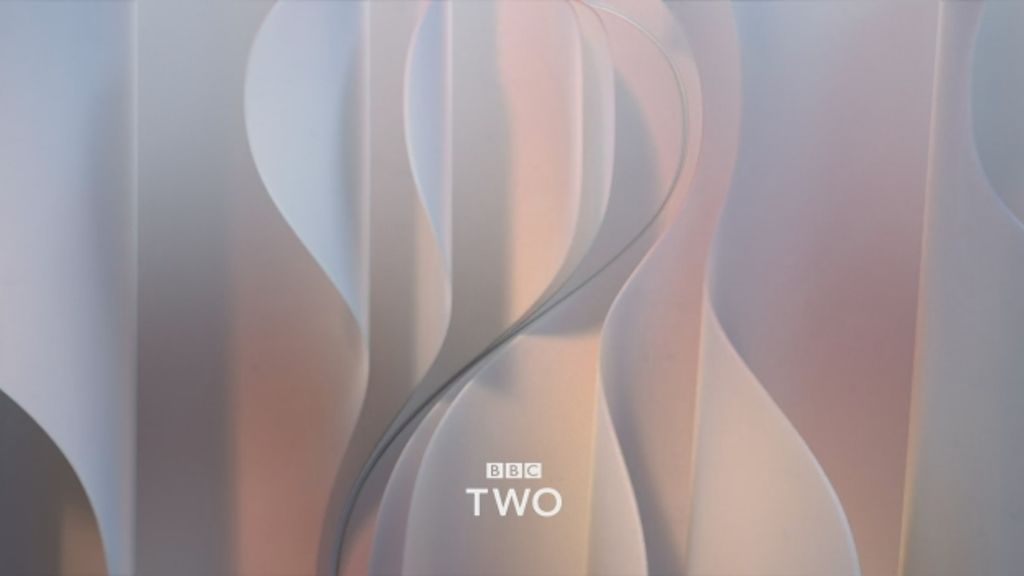
Credits
powered by
- Designer Erik Brattested
- Agency Producer Georgina Meirick
- Executive Creative Director Laurent Simon
- Executive Creative Director
- Creative Director Susan Ayton
- Creative Director Katherina Tudball
Above: Eye-catching animations helped to rebrand BBC2.
I did a placement in Paris [an internship at CLM BBDO] for a few months, and really enjoyed my time there, but the big hubs were London and New York. I didn’t fancy New York because I am European at heart. I did the Watford ad course, led by Tony Cunningham. That was such a formative time. When you’re being taught what good looks like, it helps, right?
Doing something that is also well-liked by regular people is a nice thing.
When you start out a creative partnership is essential. You may have fifty voices and 100 eyes in front of you, so it’s less daunting when you have a teammate. And it helps define your creative identity. Just as you grow older, you find your feet and find your identity as a person, it’s the same for creativity.
It's important to make sure you and your teammate are both heading in the same direction. What makes a team interesting, and stronger, is that the two people are different and go about things in different ways, but they want the same thing.
Credits
powered by
- Agency AMV BBDO/London
- Production Company Mad Cow Films London
- Director Simon Ellis
-
-
Unlock full credits and more with a Source + shots membership.
Credits
powered by
- Agency AMV BBDO/London
- Production Company Mad Cow Films London
- Director Simon Ellis
- Producer Rebecca Scharf
- Art Director/Writer Laurent Simon
- Art Director/Writer Aidan McClure
- CD Martin Loraine
- Exec CD Paul Brazier
- CD Steve Jones
- Producer Jonas Blanchard
- Post The Mill/London
- Sound Design 750 mph
- Editor Matthew Swanepoel
- Post Luke Colson
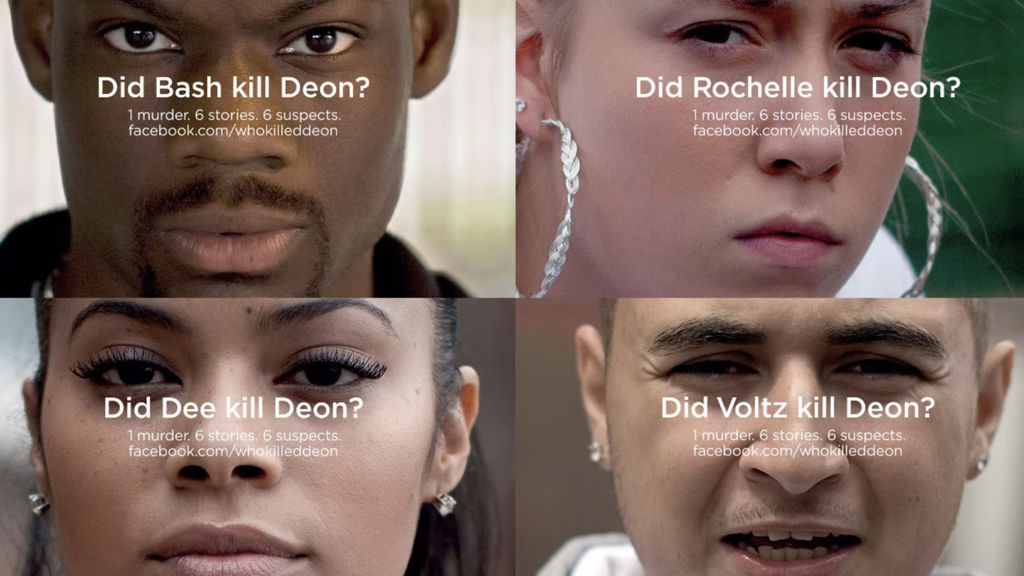
Credits
powered by
- Agency AMV BBDO/London
- Production Company Mad Cow Films London
- Director Simon Ellis
- Producer Rebecca Scharf
- Art Director/Writer Laurent Simon
- Art Director/Writer Aidan McClure
- CD Martin Loraine
- Exec CD Paul Brazier
- CD Steve Jones
- Producer Jonas Blanchard
- Post The Mill/London
- Sound Design 750 mph
- Editor Matthew Swanepoel
- Post Luke Colson
Above: Multi-award winning anti-knife crime PSA for the Metropolitan Police.
My first big break was a campaign for the Metropolitan Police, called Who Killed Deon? That got a lot of traction; a lot of awards domestically and internationally, for myself and my creative partner Aidan McClure. It was innovative in terms of filmmaking, and user platforms and the integration of campaigns.
Now it’s more to do with what I think, rather than what other people think.
I love writing, I always have. I am less good at writing than at drawing. The issue was that I couldn’t speak English. Aidan comes from a very artistic, visual family, so was naturally more inclined to be an art director. But because he spoke English, he took the writing hat and I took the art direction hat. We complemented each other, it was a case of two brains are better than one.
Winning awards makes you feel validated. It’s that simple. There’s that self belief that is always fighting self doubt, so when you get validation from your peers, that is intoxicating and reassuring. It becomes quite addictive, because you’re getting this happiness hit. Luckily, I function slightly less like that these days. Now it’s more to do with what I think, rather than what other people think.
As a creative, you are only as good as your next job. You can’t do the same great idea you had six months or two years ago. It just doesn’t work that way. That’s the very nature of the business, and on top of that you have the competition. It’s about survival, and making sure you recognition and career progression. There’s competition in this environment all the time.
It’s a job where you can’t sleep. You can’t turn up and say, ‘I know that, that’s fine’. No, it’s not fine.
You’re always needing to learn. It’s a job where you can’t sleep. You can’t turn up and say, ‘I know that, that’s fine’. No, it’s not fine. You can’t be complacent. It’s about finding a balance between what is right for you, what is right for the agency and what is right for the clients. The ideal scenario is when all three agenda align. John Lewis was a case where it all aligned.
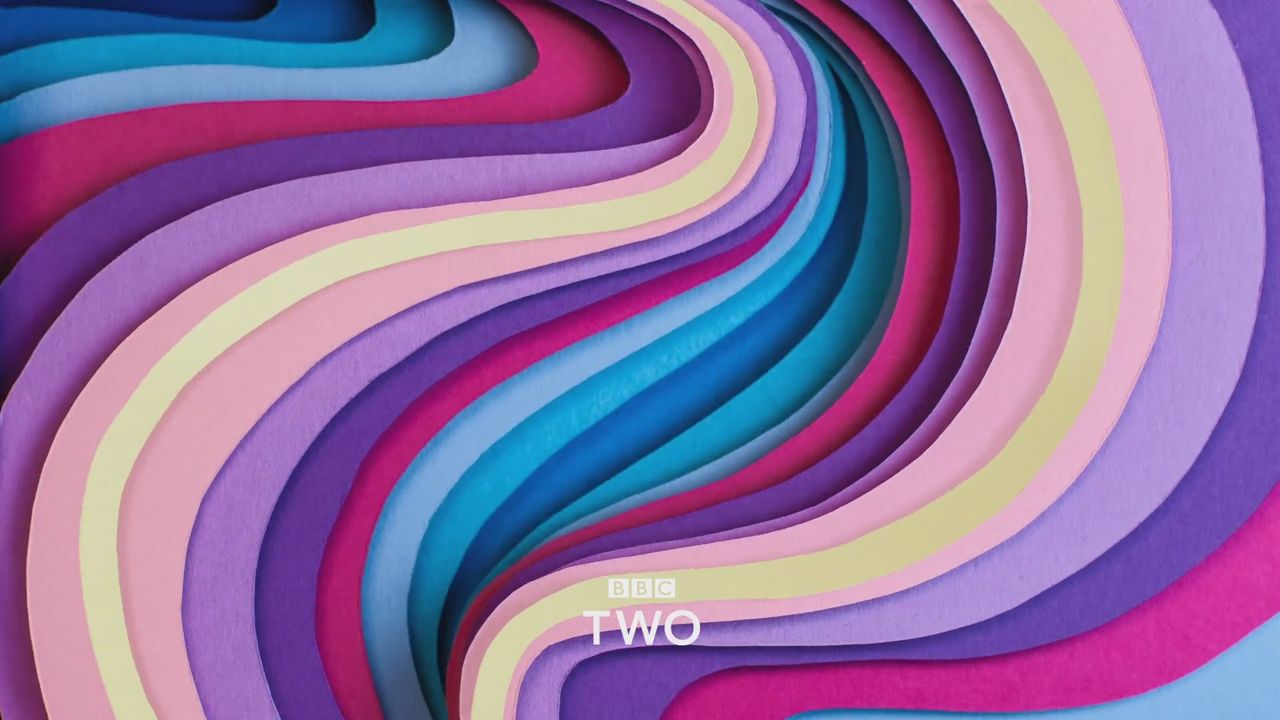
What Aidan and I brought to the table for John Lewis was to make it a holistic response, so regardless of where you were, if John Lewis was there, it was the same thread, the same creative, the same messaging. It was one of the biggest things Aidan and I did as a team. And that basically defined the model for the subsequent campaigns.
Christmas is the one time of the year when people are more receptive to advertising. So doing something that is also well-liked by regular people is a nice thing, and it’s even more satisfying because they literally have no interest in what you do, none whatsoever, so the fact that people respond, that’s success.
The BBC is meant to be for everyone, including the people who hate it.
With the John Lewis campaign, what I am most proud of is getting the Grand Prix for Effectiveness. It means that everything you’ve done from a business, a strategic, creative, production, delivery and media perspective, worked superbly.
Prizes are generally a good thing, because anything that champions ‘good’ is good in my books. Any support, any celebration, whatever it is.
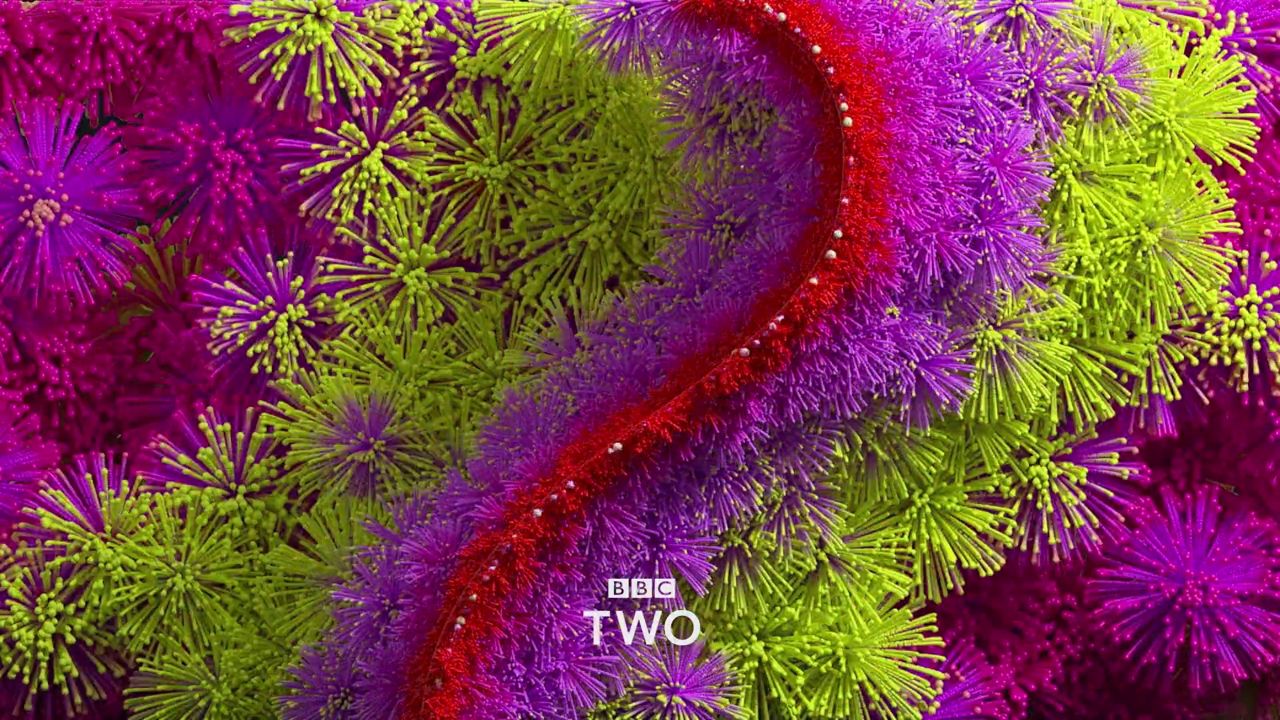
The BBC2 idents are a fantastic example of pure design. There’s thinking and strategy around it, and you know that you can’t get it wrong, because the previous ones have been so good, and you think, ‘what can I do that will have the same footprint?’.
My task at BBC Creative was to help people understand the value of the BBC. So let’s promote it, make it more relevant. The BBC is meant to be for everyone, including the people who hate it.
There was a time where all you had to do was fill in a rectangle, and come up with a poster or a script. That time is long gone.
As an ECD, you still get to use your creativity, but you also have to apply creativity to talent, culture, recruitment, business. It’s problem-solving, but applied to a much bigger canvas, with other teams, colleagues and clients, and professional partners.
During the pandemic, these offices were empty for a long time, but now it’s just nice to be in contact with people. I’m so glad we’re not in that situation anymore, because it’s bad for everyone. Virtual is much harder; it's counter-intuitive to what the creative process is.
The creative processes is anything but structured. Half the time, solutions or ideas come up because you literally bump in to someone. You don’t have to put a meeting into a diary. The immediacy and the transfer of information and inspiration is much, much faster in person. It's much more productive.
Credits
powered by
-
- Production Company RIFF RAFF Films
-
-
-
Unlock full credits and more with a Source + shots membership.
Credits
powered by
- Production Company RIFF RAFF Films
- Sound Design 750mph
- Editing Company Final Cut
- Post Production Time Based Arts
- Editor Joe Guest
- Director of Photography Nicolas Loir
- Agency Producer Ken Rodrigues
- Executive Creative Director Laurent Simon
- Creative Nick Robinson
- Creative James Reynolds
- Production Manager Hannah Fowles-Pazdro
- Managing Director Matthew Fone
- Head of Production James Wood
- Director Megaforce
- Producer Nick Goldsmith
- VFX Supervisor Francois Roisin
- VFX Supervisor Thiago Dantas Lima
- Colourist Simone Grattarola
- Sound Designer Sam Ashwell
- Creative Head
- Creative Head
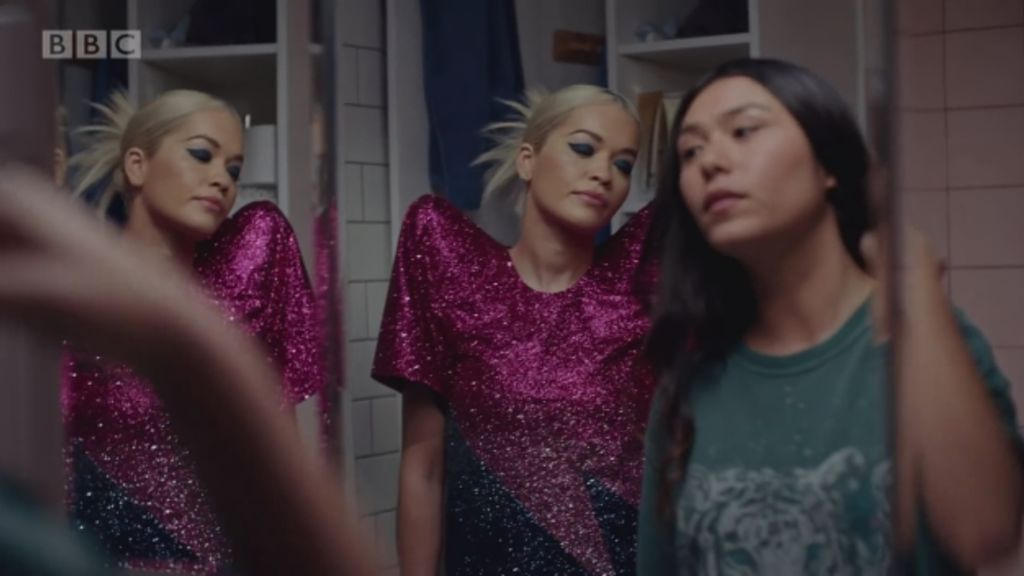
Credits
powered by
- Production Company RIFF RAFF Films
- Sound Design 750mph
- Editing Company Final Cut
- Post Production Time Based Arts
- Editor Joe Guest
- Director of Photography Nicolas Loir
- Agency Producer Ken Rodrigues
- Executive Creative Director Laurent Simon
- Creative Nick Robinson
- Creative James Reynolds
- Production Manager Hannah Fowles-Pazdro
- Managing Director Matthew Fone
- Head of Production James Wood
- Director Megaforce
- Producer Nick Goldsmith
- VFX Supervisor Francois Roisin
- VFX Supervisor Thiago Dantas Lima
- Colourist Simone Grattarola
- Sound Designer Sam Ashwell
- Creative Head
- Creative Head
Above: 2018 campaign promoting the new BBC Sounds app.
There have been massive changes since I started, but the competition element is still the same. What has changed is the complexity of it.
There was a time where all you had to do was fill in a rectangle, and come up with a poster or a script. That time is long gone. Now, if you needed an army beforehand to do something good, now you need half the planet to do something good. The problem is that needing half the planet comes with its own set of complications.
Without relevancy you don’t have saliency.
Another thing that has changed is the diversity of the people who are now allowed [into the industry] and allowed to have a voice. A client may come to you and say, my brand is not relevant enough. It's a problem you hear in different guises – without relevancy you don’t have saliency. Having people with different life experiences means they will come at it from other perspectives. And half the time having that different perspective is what gives you the shift to find a new way in.
Talent is the number-one solution and the number-one problem for the creative leader.
)
